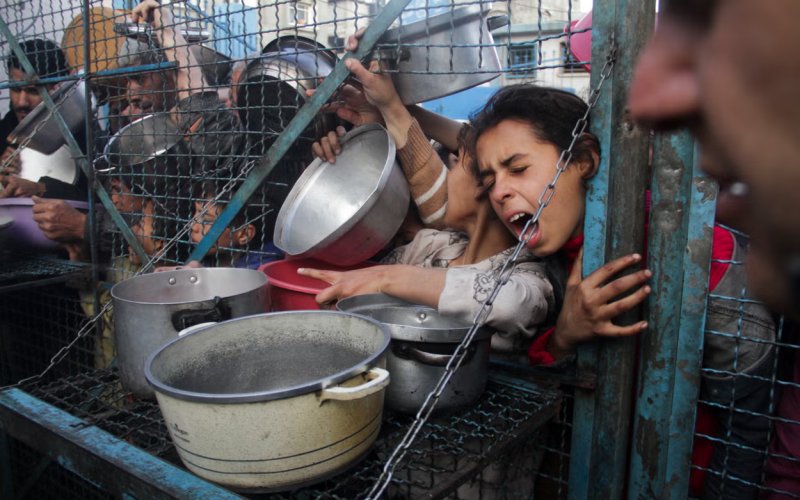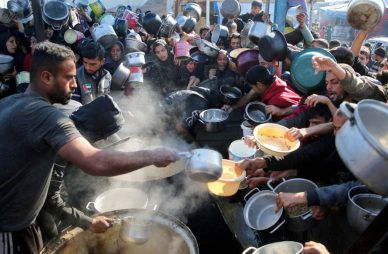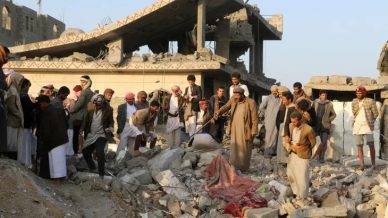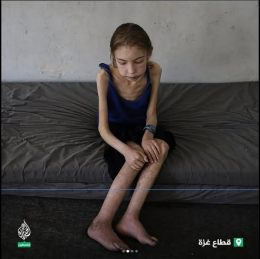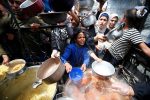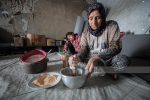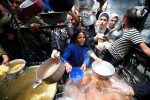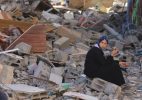GAZA, (PIC)
“Gaza, O nation of two billion, continues to pay the price for carrying the trust of the nation; hunger has returned to gnaw at the intestines of its children.” With these words, Palestinian journalist Raji Al-Hams directed an urgent appeal to the Arab and Islamic nations via his account on the platform “X” to take immediate action and break the siege on Gaza Strip during the holy month of Ramadan.
Al-Hams called in his post for youth, activists, scholars, leaders, sheikhs, and all influencers to raise their voices high and break the siege imposed on Gaza Strip, following Israel’s closure of crossings and the prevention of essential humanitarian aid from entering for survival.
He said, “In this month of goodness and blessings, the reality is difficult after two weeks of complete closure of crossings and the prevention of food supplies; twenty-one thousand trucks were supposed to reach Gaza Strip. People rely on what they purchase daily in the absence of energy and the lack of refrigerators for preservation and cooling.”
He added, “Raise your voices and support your brothers in this month, and remember the pain of your brothers at your iftar tables, remember their poor, their destitute, and their hungry.”
Bread crisis escalates
In reality, the bread crisis in Gaza Strip has resurfaced amid the continued closure of crossings and the loss of any energy sources necessary to operate bakeries.
Bakery owners have resorted to using firewood as a substitute for the fuel lost in the Strip due to the ongoing closure of crossings and the occupation’s refusal to allow its entry.
One bakery owner in Gaza Strip said, “We operate the bakery on firewood to assist citizens with the basic necessities they suffer from amid the lack of electricity and fuel.”
He continued, “There are no basic life essentials necessary for preparing food or bread.”
From the midst of the burning stove fueled by wood, he tells us, “The bakery helps people prepare bread in addition to pastries and sweets, which alleviates the difficulty of lighting wood in their homes, which is available only with great difficulty.”
He added, “The needs are not always available to us; the firewood is very scarce because everyone is now using it in their homes and tents.”
Long distances for a loaf of bread
Citizen Suhail Hassouna said, “We are forced to walk long distances daily to obtain a loaf of bread, which is often difficult to find due to the scarcity of bread in the market and the severe congestion in front of the remaining operational bakeries due to the closure of crossings and the occupation’s prevention of the entry of gas and fuel necessary for their operation. Our people’s main concern has become obtaining bread during Ramadan, which should be a time for worship instead of seeking food.”
He continued, “Often, I am forced to pay four or five times the price of a loaf from the bakery in the black market in front of the bakeries, to avoid the congestion and to ensure that I can get one to feed my children and family. Today, I went to get bread and was surprised to find the last two bakeries in downtown Khan Yunis closed.”
Famine looming on the horizon
There are signs of a real famine in Gaza Strip due to the siege imposed by Israeli occupation forces, preventing the entry of food and fuel to the Strip.
Israeli occupation authorities closed the crossings of Gaza Strip, the most important of which is the Kerem Shalom commercial crossing, and stopped the entry of humanitarian aid and commercial goods on the morning of March 2, coinciding with the end of the first phase of the ceasefire agreement, which lasted 42 days.
Local and international agencies estimate that more than 80% of the two million and four hundred thousand residents in the besieged Strip rely on humanitarian aid for their daily living and needs.
The World Food Program (WFP) stated in a statement that no food has entered Gaza Strip since March 2, indicating that all border crossings remain closed. The WFP noted that the prices of some basic food items in the Strip have increased by more than 200%.
The fastest starvation process in history
The United Nations Office for the Coordination of Humanitarian Affairs (OCHA) stated that Gaza Strip is witnessing a shortage of food, water, and health services following the Israeli occupation authorities’ decision to stop the entry of aid and cut off water and electricity from the Strip.
It mentioned that “people across Gaza are finding it increasingly difficult to find enough food, water, health services, and other vital necessities.”
Meanwhile, UN Special Rapporteur on the right to food Michael Fakhri stated that the continued Israeli occupation authorities’ prevention of humanitarian aid from reaching Gaza is “a continuation of war crimes, genocide, and crimes against humanity,” indicating that Israel is starving the 2.3 million residents of Gaza Strip, marking the fastest starvation process in modern history.

